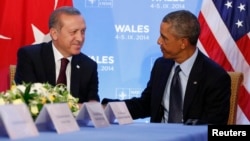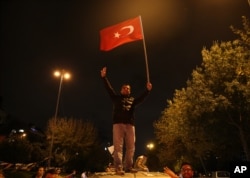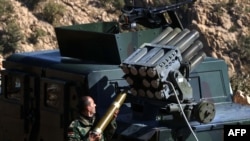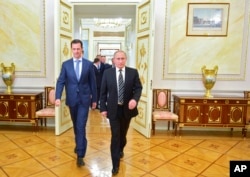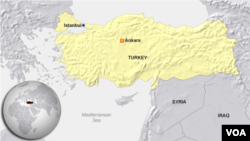President Barack Obama and Turkish President Recep Tayyip Erdogan are poised to discuss tightening cooperation on security in Syria and Iraq as world leaders prepare to gather this weekend for the G20 summit in the Turkish Mediterranean resort of Antalya.
The leaders from the Group of 20 major economies are expected to focus on economic issues when they meet on Sunday and Monday, but the deepening conflicts in Syria and Iraq also are expected to be addressed.
Turkey, a long-time U.S. ally and NATO member, has taken in more than 2 million refugees fleeing the civil war in Syria and conflict in Iraq, where a U.S.-led coalition is helping local fighters battle Islamic State militants.
Erdogan is seen as having a strong mandate from Turkish voters to stabilize the deteriorating security situation as the violence in Syria and Iraq threaten to spill over into Turkey’s southern border.
AKP control
In snap polls on November 1, voters gave control of parliament to Erdogan’s Justice and Development Party (AKP), returning the country to single-party rule just five months after the AKP lost its majority for the first time in more than 10 years.
“I would argue that this is actually a good thing for U.S.-Turkish relations,” said Joshua Walker of the George Marshall Fund. “It’s very difficult, whether it’s a coalition or having a weak mandate government to have decisive change.”
The G20 summit will be an opportunity for the United States and major powers involved in the effort to counter-Islamic State (IS) to discuss a way to return stability to the strategically critical region.
“Given the serious pressure that our Turkish allies are under, from the large number of Syrian refugees that they’re caring for and from the terrible violence that’s going on just on the other side of their border, it would be impossible to travel all the way over there and not spend some time thinking about and talking about our ongoing effort to degrade and ultimately destroy ISIL [Islamic State],” said White House spokesman Josh Earnest.
Critical discussions
Observers say the summit offers Obama and Erdogan a chance to hold critical face-to-face talks on ways to move toward common goals, despite their differences, which include the role of Kurdish fighters battling IS in Syria with the backing of the U.S.-led coalition.
In July, Turkey began allowing the coalition to use its air bases in the effort to counter Islamic State. Ankara is concerned, however, about how much authority and territory the Syrian Kurdish forces of the Democratic Union Party (PYD) will gain with the backing of the U.S.-led coalition. The PYD is affiliated with the PKK Kurdish rebel group in Turkey, a terrorist group that Ankara has been battling for more than three decades.
A key difference between the U.S. and Turkey on how to move forward in Syria is a fundamentally different view on where the greatest risk lies, said Michael Gunter, author and Middle East expert.
“Turkey has never seen ISIS [Islamic State] as the existential threat that the United States and many others see it as, and until Turkey does, we are going to continue to have misunderstandings here,” he said. “Turkey still sees the Syrian Kurds as being more of a danger than ISIS.”
Political transition
The U.S. and Turkey also are demanding political transition in Syria and an end to President Bashar al-Assad's rule, but the two countries have differences on solutions. Ankara has been adamant that Assad have no role in the transition process, while a proposal drawn up during recent international talks in Vienna did not rule that out.
“I think an important component for a successful outcome is for the United States to make clear what we want and what we’re prepared to do to get what we want in collaboration with others,” said Francis Ricciardone, former U.S. Ambassador to Turkey, and Middle East analyst for the Atlantic Council.
Further complicating matters are Russian airstrikes in Syria that Moscow claims are aimed at Islamic militants, but the U.S. argues are not targeting extremists and really are meant to prop up the Assad regime as it battles opposition fighters.
What is clear to both the U.S. and Turkey, according to Ricciardone, is that each is “critically important” to the other. What is needed now is a “strategic meeting of the minds,” he added.




